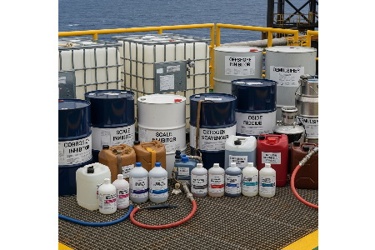Offshore Water Treatment Chemicals To Reach USD 3.7 Billion By 2033

According to Research Intelo, the offshore water treatment chemicals market size reached USD 2.1 billion globally in 2024, driven by stringent environmental regulations and the increasing complexity of offshore oil and gas operations. The market is expected to register a robust CAGR of 5.8% from 2025 to 2033, reaching a projected value of USD 3.7 billion by the end of the forecast period. This growth is primarily attributed to the rising demand for efficient water treatment solutions in offshore environments, where operational reliability and environmental compliance are paramount.
Offshore industries such as oil & gas, shipping, and marine engineering rely heavily on water for various processes. However, working in marine environments brings unique challenges — from seawater corrosion to microbial contamination. This is where offshore water treatment chemicals step in, providing essential solutions to keep operations safe, efficient, and environmentally compliant.
Understanding Offshore Water Treatment Chemicals
Offshore water treatment chemicals are specialized formulations designed to treat seawater and process water used in offshore facilities. Their role extends beyond purification — they protect equipment, ensure water meets operational standards, and safeguard marine ecosystems.
These chemicals are tailored to withstand harsh offshore conditions such as high salinity, fluctuating temperatures, and exposure to corrosive elements.
Why They Are Critical for Offshore Operations
Offshore operations deal with large volumes of seawater for cooling, drilling, and production processes. Without proper treatment:
- Equipment Corrosion can damage pipelines, pumps, and machinery.
- Microbial Growth can lead to biofouling, reducing efficiency.
- Scaling Deposits can clog systems, disrupting operations.
- Environmental Risks can arise from discharging untreated water.
By using the right chemicals, operators can maintain smooth operations, extend asset lifespan, and comply with strict offshore environmental regulations.
Key Types of Offshore Water Treatment Chemicals
1. Corrosion Inhibitors
Protect metal surfaces in pipelines, rigs, and machinery from saltwater-induced rusting and degradation.
2. Biocides
Prevent microbial growth that leads to biofouling and contamination.
3. Scale Inhibitors
Reduce the formation of mineral deposits, keeping systems free from blockages.
4. Demulsifiers
Help separate oil from water in production processes, improving water clarity and quality.
5. Oxygen Scavengers
Remove dissolved oxygen from water, minimizing corrosion risk in storage and distribution systems.
Applications in Offshore Industries
Offshore water treatment chemicals are used in various critical operations, including:
- Oil & Gas Production – Treating injection water, produced water, and cooling systems.
- Desalination Plants – Ensuring reliable freshwater supply for offshore crews.
- Marine Vessels – Managing ballast water and preventing contamination.
- Environmental Compliance – Treating discharge water before releasing it into the sea.
Challenges in Offshore Water Treatment
Despite their benefits, offshore water treatment chemicals face some challenges:
- Harsh Marine Conditions – Extreme weather and high salinity impact chemical performance.
- Environmental Restrictions – Stricter regulations demand eco-friendly formulations.
- Cost Pressures – Offshore projects face tight budgets, making cost-effective solutions essential.
Future Trends in Offshore Water Treatment Chemicals
The industry is evolving toward greener, more efficient solutions. Key trends include:
- Eco-Friendly Formulations – Non-toxic chemicals that meet environmental compliance.
- Advanced Monitoring Systems – Sensors that optimize chemical dosing in real-time.
- Hybrid Treatment Solutions – Combining mechanical and chemical processes for improved efficiency.
Conclusion
Offshore water treatment chemicals are essential for safe operations, regulatory compliance, and protecting marine ecosystems. As offshore industries grow, adopting advanced, eco-friendly solutions ensures efficiency, safety, and sustainability—making them a vital investment for a cleaner and more responsible future.
Source: Research Intelo
